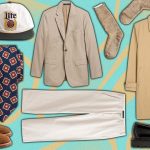In 2006, during my third year at university in London, I was living alone and going out every night. I remember maybe two nights in my flat in six months. At the same time I was ostriching my education, bunking lectures, and delivering coursework at the last minute. In a way, with graduation looming, I was ostriching my future. I had a feeling the silliness of my childhood was ending, my life inevitably slowing to a crawl, to an official adulthood with nobody paying my rent. I wanted my adult life on the backbench, to run away from grown-up commitment. I don’t remember wanting any kind of career, understanding that you either die a hero or live long enough to see yourself become a civilian. I had a dream of being a night crawler. I remember vividly coming home one weekend and earnestly explaining to my mum that I wanted to be a man about town. As a job.
My life at the time was measured in parties, but I had a wandering eye. London was my mistress until I cheated on her, embarking on a 90-day affair with New York, the exact length of a tourist visa. I booked a flight to JFK three months after my degree, undercoating adulthood with one last hurrah.
A week before my flight, I’d randomly met a Manhattan-dwelling Brit at a lock-in who said I could sleep on his sofa when I arrived as long as I didn’t tell immigration his name. I slept in a single bed under a mezzanine in a Tribeca loft for a month. I was a deliberate non-tourist. I’ve still never been to Katz’s Deli, famous for serving fake orgasms. Instead, I walked down Fifth Avenue listening to “Englishman in New York” on status symbol iPod headphones. I ordered bottomless coffee in diners. I went to the Sunshine Cinema. There was a Lagerfeld x H&M wedding dress collab and I went to see the hordes of tourists queuing round the block for Lily Allen tulle. I went on the giant Big keyboard at FAO Schwartz (that’s a bit touristy). I drank PBRs at lesbian karaoke nights where some terribly sad looking girl would always sing Lisa Loeb’s “Stay” with the passion of the Christ.
My clothes were … interesting. I dressed like the Artful Dodger had moved to New York, an unappetizing garment salad. I was already addicted to British charity shopping, visiting seaside towns for gems, but in New York I got to call it thrifting. I’d scavenge musty stores for “finds” with fevered excitement. Because of my legs-up-to-the armpits and ski-flat feet, waist-down I’d dress exclusively from the high street. Converse were obligatory. Further up, my look was the tightest Topshop skinny jeans (that I took in further at the ankles) and dead men’s shirts in garish patterns (that I took in so they were skin tight). I was smart-adjacent dressing—dress shirts, trench coats—but everything was threadbare or mothy. I wore a bowler hat. I found a gold raincoat and took it in on a sewing machine which compromised its waterproof-ability. Jewelry-wise, I had a penchant for bric-a-brac albatrossed at the neck, lassoed onto a chain with a spiral keyring. Anything metallic and not too weighty was slung against my chest. The bottom of a wrestling trophy. A camel from a nativity scene. Forgotten Christmas ornaments. The Artful Dodger in me was thriving, knowing you’ve got to pick a locket or two.
Courtesy of Raven Smith
Being British in New York is its own personality. Britishness makes you shiny like a tuppence. People think you’re special. It’s connected to our British royalty I think. Some properness imbued in the accent, with the idea that our women don’t fall out of nightclubs, they curtsey and have tell-tale inflections of polite speech. Brits have the great ceremony of a shooting weekend, Americans have concealed-carry handguns. Realizing the street value of my Britishness, I immediately became more pronounced in my English. I started pronouncing the L in almond. I sometimes said guv’nor. I sometimes said spiv. As I mentioned, I wore a bowler hat. I was the sort of whimsically charismatic Brit (read: stupid idiot) who leaves a nightclub at 3 a.m. and crawls onto a bus to Philly.
Britney was off the rails in LA, driving erratically as her family googled conservatorships, but she was an amateur compared to the night dementors of New York, who dressed in head-to-toe deep-space black like vampire Ramones. The look was haunted Victorian doll. Club kids ruled the night. There were the people you’d see out drinking all the time: they had stupid hair and stupid nicknames that only you and your friends knew and shared privately. We had “Brothers and Sisters,” a family whose generational makeup didn’t quite add up because they were a mother and her sons; “Petito,” who looked like a petit potato; does the nickname “Skull in a Wig” need explaining? At one point I wanted to rebrand myself as “Bobby London” (“Bobby” as in an English policeman), just to compact the Britishness. As I happily supplanted the East London hipsters for Brooklyn ones, I’d log into MySpace in the morning from my laptop and see if my outfits had worked and someone had taken any pictures of me at the party. The dream was a Cobrasnake shot, papped in the basement of Misshapes. My MySpace name was Raven Does Boys, but I was perennially single.
No matter how hard you party, there’s always someone partying harder. For the most part, I was partying harder than Britney. This was off the back of Britain’s single flying-ants summer of new rave. New rave was like regular rave from the nineties, but newer, born in Hoxton and from what I remember very highlighter colors, very DIY. The music was synth-y. Everyone had glow sticks and dummies and I was slowly transitioning from patterned cadaver shirts to Jeremy Scott sweats and checkerboard jeans from Trash and Vaudeville. Misshapes was still a thing, but the vampires had swapped their capes for klaxons, their vinyl for cassette playas. I remember an assembly of the kind of hangovers when you look down at lunchtime and realize you’re dressed as a fluorescent jester, or one of those Covent Garden street performers. I once pinned a black bow tie on an American Apparel vest (you have to say tank in the States) and wore it with green jeans, and nobody even blinked. There were no Sweetgreens back then, so in the daylight hours between Lower East Side jaunts, I lived off Starbucks frappes and single servings of Tropicana, the one with pulp left in for the sake of my health. I couldn’t stop drinking gallons of Vitamin Water, the pink one affiliated with 50 Cent. I was experiencing Victorian consumption by way of a sugar overload. By the end of my trip I was drinking Sparks, which is basically a house party cocktail of caffeine and rubbing alcohol. The design of the can is a battery, indicating its ability to charge you up.
After a month in New York, I moved into the McKibbin Street Lofts, a huge abandoned factory in East Williamsburg, then the medium-bad part of Brooklyn. The building had a freight lift that we only used when visitors came to exemplify our new New Yorkness, and was a far cry from the Rosemary’s Baby–type Upper East Side apartment I still dream of. The area is beyond gentrified now—you can’t move for microbreweries—but at the time we’d hear gunshots and just shrug until a local resident said “If you hear gunshots, you eat the fucking pavement.”’ McKibbin smelled like teen spirit, but everyone was at least 25 with the faraway never-grow-up stare of Never Neverland Lost Boys. It was a tessellation of dorms, each containing up to six eccentric roommates that rarely had anything in common. My roomies were like a gnarled video tape of Friends where all the cast are distorted. Hester, a space cadet in the truest sense of the word, actually dressed as a space cadet, painted bright blue, for an alternative beauty pageant. My other flatmate had a dog called Vlad who remains the ugliest animal I’ve ever encountered, a sweet potato with four legs and bad breath. My upstairs neighbor Fahj remains a good friend. I met him on the steps of McKibbin on Halloween and asked who he was dressing as. He said “Kelly, Shoes” which will carbon date this period for some people. He went on to be McKibbin’s longest-serving party boy, a veteran of the scene, advising over-partied youngsters like the Gamesmaster. The factory was a conveyor belt of merrymakings, you could always hear the beat of a good time calling out to you.
I grew accustomed to a life on the L train, visiting Manhattan for parties. I frequented go-go bars with open bars. I spent Halloween as the Jolly Green Giant, but we accidentally went to a club where a margarita was $20. One of my mates came out for a flying visit and we met under the lobster in Times Square. We got caught bunking the subway by the police and were issued official looking tickets that we still haven’t paid. We took fake police mugshots on the platform, and in the freight lift up to the apartment she genuinely asked me if I was missing my pineapple juice (I was). I had, I noted, arrived at the authentic New York experience I was craving at 21.



